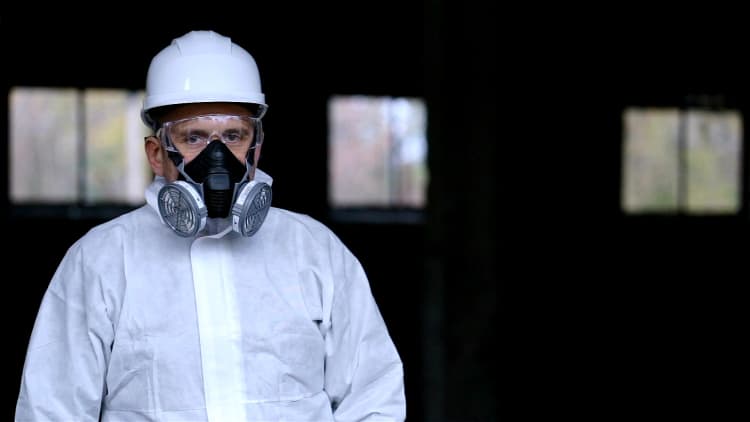
The U.S. has confirmed only a fraction of the total number of coronavirus cases in the country, a former director of the U.S. Agency for International Development told CNBC on Thursday.
"We still don't have anywhere near full visibility on total cases in the U.S. because of the testing shortfalls," Jeremy Konyndyk said on "Squawk Box." "What we're seeing so far in terms of official case numbers in the U.S. is probably just the tip of the iceberg."
At least 159 cases of COVID-19 have been confirmed across the U.S. as of Thursday, according to Johns Hopkins University. Eleven people have died, U.S. health officials said.
State and local officials have said the number of actual cases is far likely higher than the confirmed total. Gov. Andrew Cuomo said New York has confirmed 11 cases, but added that as the state ramps up its capacity to test patients, "this is going to expand in an exponential way."
Earlier in the outbreak, the Centers for Disease Control and Prevention sent out test kits to public health labs across the country. CDC officials have since said those kits were defective, and it released new guidance and kits for detecting the virus. Cities and states are now working on improving their local capacity for diagnosis so that clinicians don't have to depend on shipping the tests to CDC labs, which can delay the process.
As the number of confirmed cases in the U.S. increases, it could strain the U.S. health-care system, said Konyndyk, senior policy fellow at the Center for Global Development whose research has focused on global outbreak preparedness.
"A couple years ago during a particularly bad flu season some U.S. hospitals that were hard hit were treating people on gurneys in hallways and setting up surge tents outside their buildings just to keep up with the case load from flu," said Konyndyk, former director of the USAID's office of foreign disaster assistance. "We're still in high flu season right now, so there's not a lot of spare bandwidth within the U.S. hospital system."
Hospitals across the world are not prepared to handle the COVID-19 outbreak, World Health Organization officials warned last week. Health systems, even in more advanced countries, are "just not ready" for an epidemic, said Dr. Mike Ryan, executive director of the WHO's health emergencies program.
"We've already seen in countries, and quite sophisticated countries, who've had a rapid rise in cases in the last week are having trouble coping with the clinical case loads," he said Friday. "We need to keep this virus slowed down, because health systems around the world, and I mean North and South, are just not ready."
Read CNBC's live updates to see the latest news on the COVID-19 outbreak.



